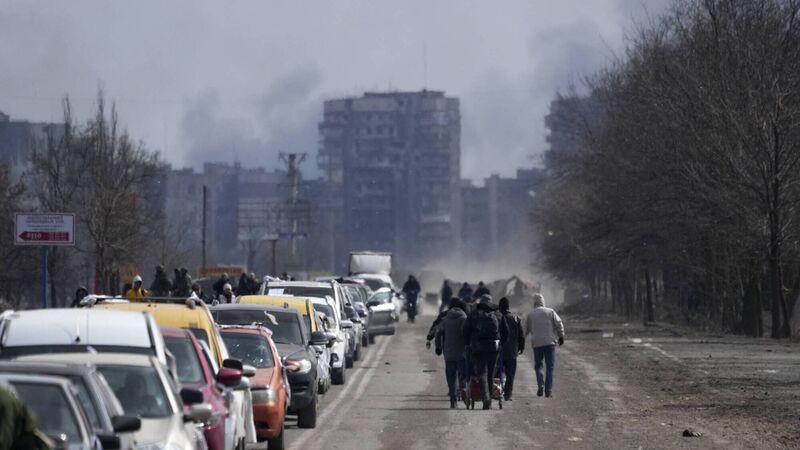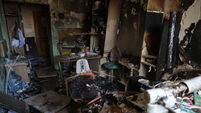Paul Hosford: War in Ukraine gives impetus to accelerate production of renewable energy

Civilians trapped in Mariupol City under Russian attacks, are evacuated in groups under the control of pro-Russian separatists, through other cities, in Mariupol, Ukraine on Sunday. Picture: Getty
"And the incident at Chernobyl proves
The world we live in is very small"
















